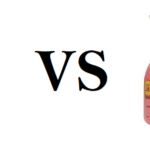WHEN TO USE HAND SANITIZER AND WHEN TO USE HAND SOAP
You Might Not Be Cleaning as Effectively as You Think
With the current panic surrounding germs, infectivity, and hand cleanliness, there are a lot of assumptions being made and precautions being taken that aren’t exactly helpful. Panicked shoppers are going through bottles of hand sanitizer like it’s going out of style, but they might not be killing any germs on their hands if they’re not using the sanitizer properly and taking care to wash their hands when possible.
A ton of studies has been conducted to determine the efficacy of hand soap and hand sanitizer in community settings. Both measures are appropriate for reducing germs in certain situations, but if you’re using hand sanitizer as a go-to at the wrong time or if you’re not using it properly, you might not be reducing your chances of getting sick or making others sick at all.
When to Use Hand Sanitizer
Not as Often as You Think
Hand sanitizer is a viable alternative to soap and water in some situations. If soap and water are unavailable, sanitizer can help reduce the number of germs on your hands. Sanitizer does not eliminate all germs, so it’s still important to wash your hands regularly.
To be effective, your hand sanitizer should contain at least 60% alcohol. Alcohol-based hand sanitizers can inactivate microorganisms when they’re used correctly. To use a hand sanitizer correctly, your hands should already be clean. Sanitizer won’t work properly if your hands are soiled. If your hands are clean, you can kill and deactivate microbes by applying enough sanitizer to cover all surfaces of your hands.
If you’ve been handling food, sweating, working in dirt, participating in outdoor activities, or handling any type of grease or oil, hand sanitizer is probably not going to be effective until you’ve washed the soil and other material from your hands with soap and water.
Many people don’t use enough sanitizer to be effective, or if they do use enough, they wipe off the excess before it’s dry. Wiping off sanitizer before it dries on its own will render the sanitizer ineffective.
You should never use hand sanitizer to clean chemicals from your hands. Sanitizer cannot remove or inactivate chemicals. Studies have shown that when hand sanitizer is used to clean chemicals from skin, more of the chemicals are absorbed by the body. Adding an alcohol-based sanitizer to existing chemicals on the hands could lead to chemical injury.
When to Wash Your Hands
Every chance you get.
Before and after going into a public place, you should wash your hands to reduce the likelihood of spreading germs to yourself and others. After eating, using the restroom, touching another person, or touching items that other people might have touched, you should wash your hands with soap and water.
Any time you handle chemicals, dirt, animals, or anything else that carries a risk of injury or infection, wash your hands with soap and water as soon as possible. In these situations when your hands may be soiled, sanitizer is not a reliable option. Soap and water are more effective than sanitizer at removing germs like norovirus and cryptosporidium.


Comments
WHEN TO USE HAND SANITIZER AND WHEN TO USE HAND SOAP — No Comments
HTML tags allowed in your comment: <a href="" title=""> <abbr title=""> <acronym title=""> <b> <blockquote cite=""> <cite> <code> <del datetime=""> <em> <i> <q cite=""> <s> <strike> <strong>